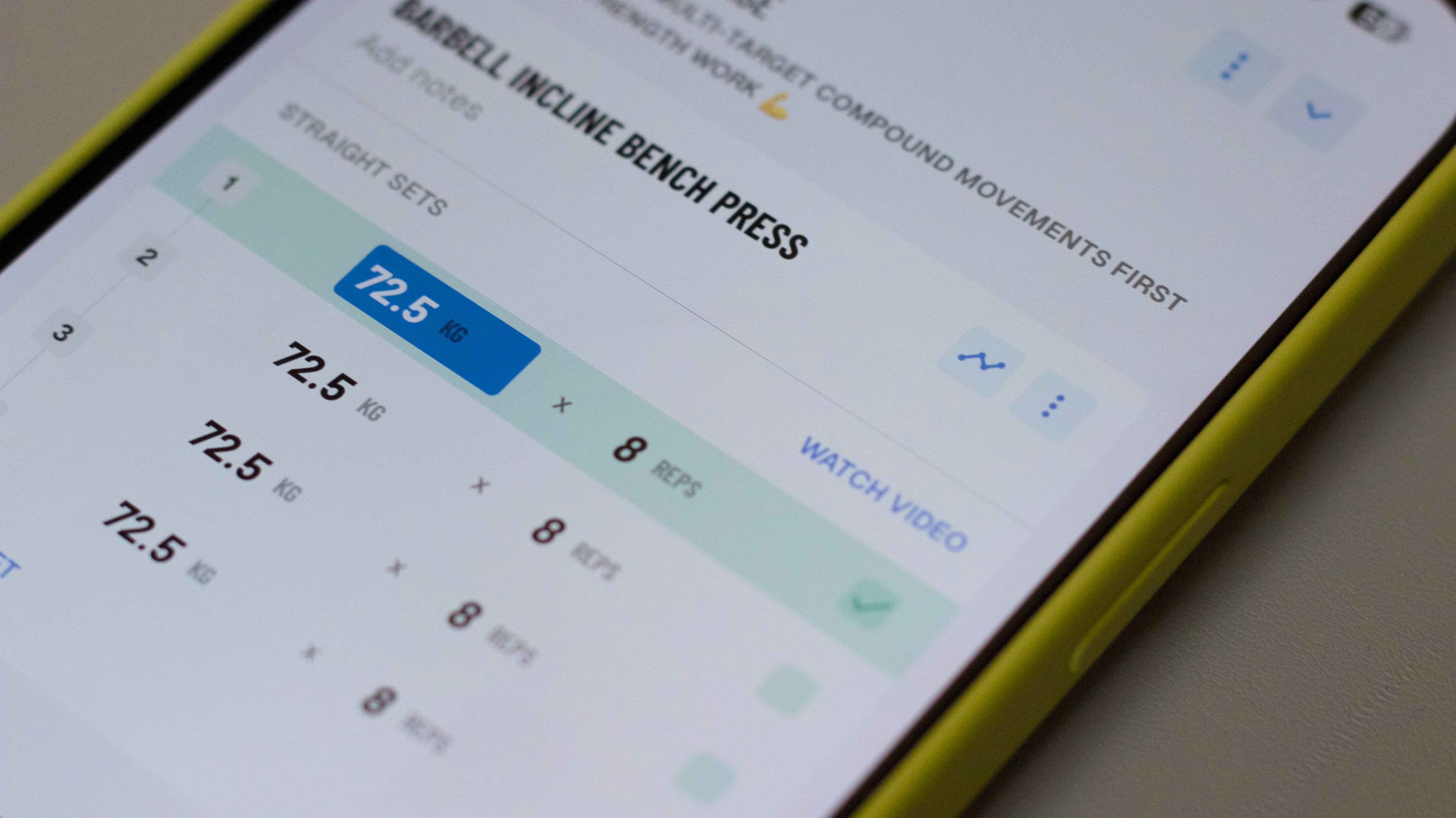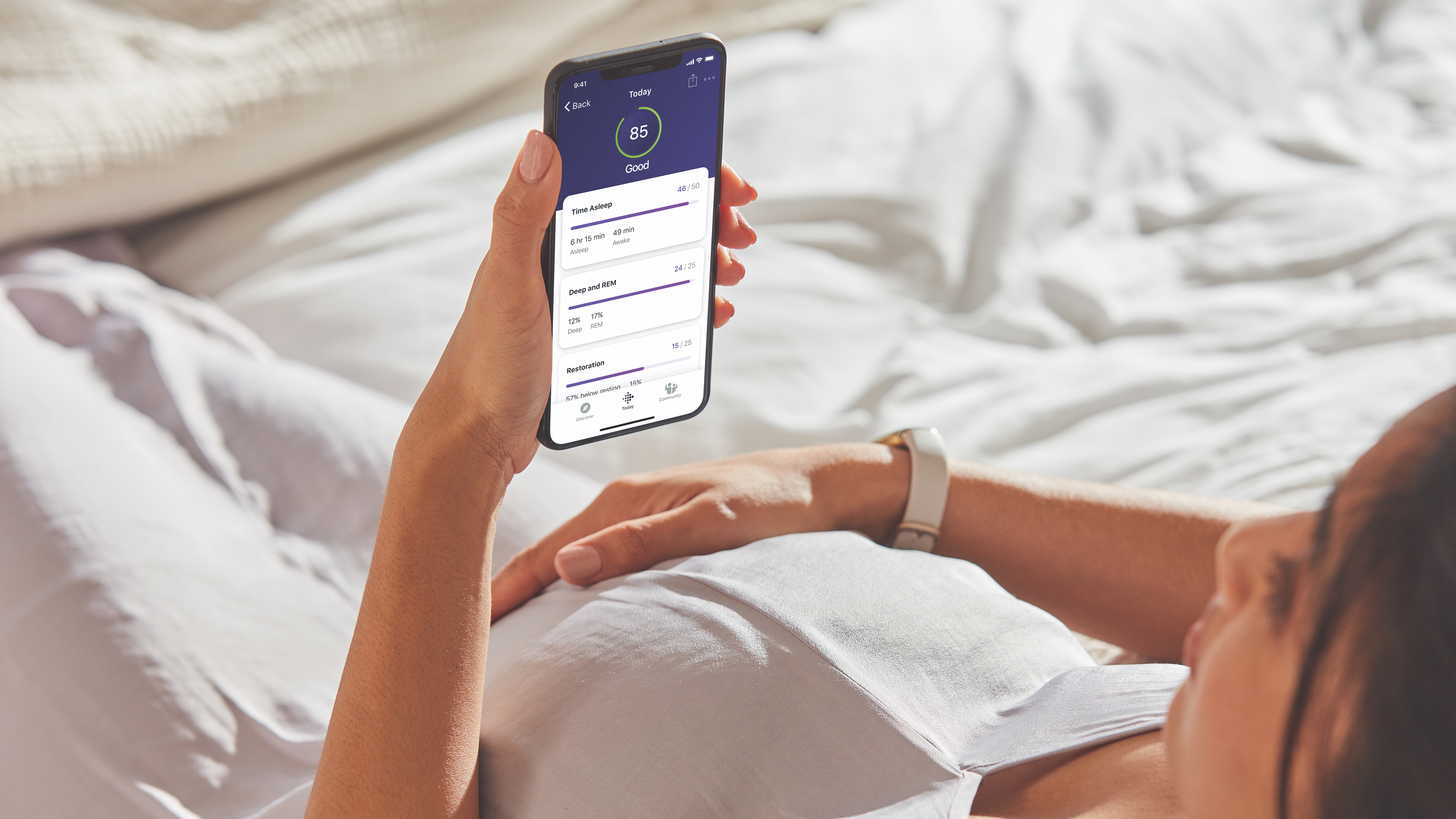The reveal of the Google Pixel Watch 4 was the main bone thrown to Google’s health and fitness ecosystem at this year’s Made by Google 2025 live event and the Pixel 10 launch. The watch was undeniably impressive – starting at $399 / £349 / AU$579, it includes all-new features like on-wrist Google Gemini AI, all-new workouts, replaceable parts, and a satellite SOS service. We can’t wait to review the watch in full, but you can read our early Google Pixel Watch 4 review for our first impressions.
However, another fitness feature was briefly mentioned alongside the new hardware: a personal AI health coach. During a segment with celebrity Peloton trainer Cody Rigsby, it was announced via a stock-footage sizzle reel that the health coach, powered by Google Gemini, was „always available, always adapting, backed by science, and uniquely tailored to you“. It’ll begin previews in the US in October, presumably rolling out to other regions shortly after, as part of a redesigned Fitbit app.
Aside from touching on performance, health and wellness, and sleep (and featuring NBA all-star Stephen Curry as Google’s ‚performance advisor‘ whatever that means), very little was said about what the Coach would actually do or look like. In fact, we got more information from a YouTube video which was shared by Google, but not publicized or shown during the presentation itself. I’ve embedded it below.

Clearly, it shows that the user can ask questions about their health and fitness, and the AI coach will pull data from their Fitbit and contextual information (such as the user tweaking their back) to provide contextual fitness advice, such as altering their sleep schedule or replacing a high-impact cardio session with a gentler yoga flow.
However, considering how much was shown about other Google Pixel devices and features during the live event, the health coach was barely touched on. I’d love to know more; how is the AI health coach „backed by science“? What features will it have? Will it interface with the Pixel Watch 4? What does ‚Stephen Curry, Performance Advisor‘ actually look like? What will its name be?
Below are some of the features I think the AI health coach needs to adopt (read that as ’steal from other apps‘) to be a truly revolutionary tool and an industry leader. Forget celebrity endorsements and flashy sizzle-reels
1. Interfacing with non-AI devices
The Google Pixel Watch 4 may have Gemini on-wrist, but the vast majority of users of even the best Fitbits will be sporting devices with no AI capacity. While the AI assistant is likely to process and answer questions on your phone, it would be cool if certain features, such as any workouts or running routes the AI comes up with, could be pushed to your Fitbit watch to follow along on-wrist.
This would require the AI to first devise the plan, then export the plan into a format the watch can use, then push the plan to your watch. We imagine it would then remind you to sync your watch again to ensure the plan loads, but this would allow Fitbit or older Pixel Watch users to still use the AI service to its fullest extent just by subscribing to Fitbit Premium – which, of course, is where the money is.
2. Adaptive training plans
While the AI health coach video above shows the AI suggesting tweaks to its training plan, such as replacing a high-impact cardio session with a low-intensity yoga class to support the user’s bad back, it stopped short of suggesting adaptive training plans of the kind used by AI-powered training apps such as Runna.
Truly adaptive training plans take into account your performance as well as your preferences: if you’re doing better than expected and hitting goals beyond what your training plan had prescribed for you, it can intelligently recognize this and up the intensity.
For example, Samsung has 140 different running coach plans for all sorts of distances and fitness levels, automatically shifting you to easier or more challenging plans based on your performance during workouts. If you’re struggling with the speed and distance Samsung recommends, it’ll make things easier next time.

3. Plateau-breakers in strength training
Cardiovascular training is easy for fitness watches to record because it uses metrics the watch can record on its own, such as heart rate, distance, time, and speed. Making a fitness watch or app relevant for strength training has always been a challenge: a watch can make a good guess at the number of reps in a set, but there’s no way for it to automatically record what kind of weight the user is picking up.
Most weightlifting apps take the form of a combination journal and workout planner. PUSH, which we rated the best app for strength training, offers AI-generated workout plans, a built-in rest timer, journal functionalities, and even recommends ‚plateau-breaker‘ exercises. If you find yourself recording the same amount of weight on a particular exercise, PUSH will recommend a move that will help you build the strength to clear the bar next time.
We’d love it if the AI fitness coach could recommend similar exercises, do so intelligently, and prompt users to try them. Very few people would think to ask Gemini „what’s a plateau-breaker exercise for a 70kgs bench press?“ but might give an exercise a go if prompted to do so.
4. Scanning your plates
When it comes to health, exercise is only one-third of the battle, with the other two-thirds being sleep and nutrition. Each affects the other. Nutrition suffers the same problem as weightlifting: the need to manually record a number, be it calories, grams of protein, or something else.
The success of apps like MyFitnessPal was down to attempting to automate the process by having an automatic calorie estimation for the most common foods, or the ability to scan barcodes to provide nutritional information. There are quite a few third-party apps now that offer, or promise, calorie estimation of a meal via a quick photograph of a plate.
This is not a perfect process, and many of these apps seem more than a little suspect and data-hungry to me. But with Google Gemini and all the image-recognition photograph tools it enables, there’s an opportunity for Google to incorporate something really interesting here: an easy way for people to monitor their nutrition, and add their macros and calorie counts to the vast amounts of information the AI health coach draws from. Simply take a photograph of your meal, tell the AI what it is, and it could automatically estimate nutritional stats.

5. An inclusive approach
But what about the outlying points on the graph? People who are very underweight, or very overweight, the elderly, or perhaps those confined to a wheelchair. Will the health coach be sufficiently science-backed to cater to the marginalized as well as the majority? We hope so.


